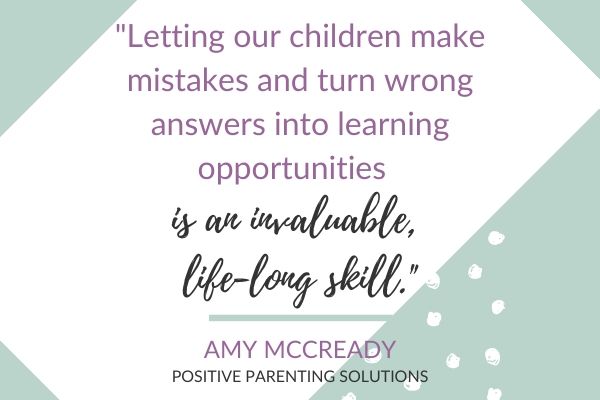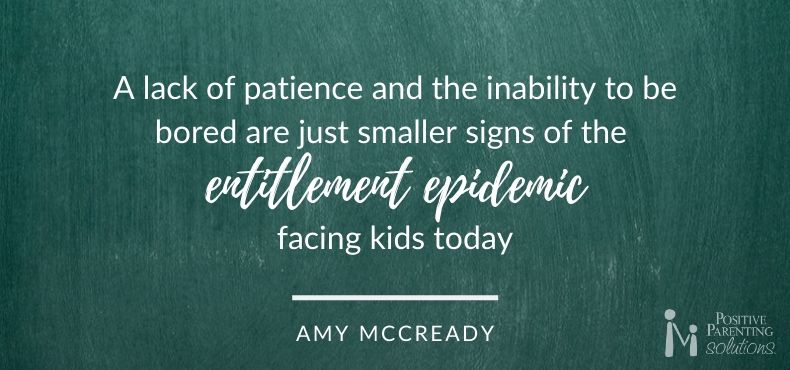


During our school days of yore, many of us were late-night crammers and school-project procrastinators. We chose to play outside with friends rather than finish our math homework. We dreaded huge papers and intimidating tests.
Now that we’re older and wiser–and understand the long-term payoff of homework and studying–we want our kids to have a different attitude towards schoolwork. We want them to make smart, motivated choices (see our Ultimate Guide to Motivating Your Kids!).
We want them to LOVE studying.
Okay, maybe that’s a parent’s pipe-dream. But wouldn’t it be wonderful?
Considering that most kids aren’t going to fall head-over-heels for homework and studying anytime soon, what is–realistically–the best thing that we can do to help them?
Doing well in school, no matter the grade, takes a good set of habits. It also takes diligence and determination. Learning these skills might even assist them in all of life’s responsibilities and challenges.
If we want our children to be self-motivated for success, instilling the following 7 study habits is a great place to start.
1. Remove Distractions
I’ll bet this sounds familiar.
“Alex, please just focus on your homework for 10 minutes!”
“Riley, If you stopped goofing off, you’d already be finished with your reading assignment!”
We know that one of the biggest problems with homework isn’t our kid’s inability to do the work. It’s the avoidance. While there can be multiple reasons for this avoidance, we can combat it by removing distractions.
It may be an obvious solution, but in our technologically-inundated households it’s becoming increasingly harder to remove diversions like cell phones, iPads, and TV. The more we do so during study hours, however, the more our students can truly concentrate on the tasks at hand.
Also, if we’re in the habit of playing background music while our students study, we should make sure to ask if it is helping or distracting them. Sometimes it can be quite helpful (like for some kids with ADHD), but other times, even soothing music disrupts a child’s concentration.
Fewer distractions simply equates to higher quality work–and less time spent doing it!
2. Make Homework Less of a “Chore”
The most common reason for homework avoidance is that it feels too much like a chore. It’s understandably the last thing kids want to do after a long day of school. They just want to relax or play. Yet, the homework still needs to get done.
Whenever possible, instill the idea that homework can actually be fun. Or, at the very least, that it can be interesting.
I know–you’re wondering how you could ever make thirty algebra equations even remotely intriguing or fun. Especially when kids ask, “When will I ever use this in the real world? This is useless.”
To give them a dose of practicality, consider associating school lessons with family activities. Maybe your second grader is reading about food groups for a book report. While she studies each food group, she can help plan that night’s dinner menu. Later, while serving the family an eclectic dinner representing the food groups–and their rainbow of colors–she can proudly explain what she’s learned.
If your junior high student is dreading his science project but really loves Star Wars, help him brainstorm project themes that play to this interest–like the concept of traveling at light speed–that he can embellish with his favorite Star Wars characters and stories.
And back to those algebra equations.
Lots of interesting, real life-examples can come into play through math (like How Can You Win Every Prize at Chuck E. Cheese’s?), so try to encourage some imagination when your kids are just staring at numbers.
It may take extra time on our part to be creative (and we’re all short on time, I know), but we’ll bank time later when they’re interested enough to cooperate and start imagining on their own.
Not everything in life is fun, of course, and kids need to understand this. Sometimes, things just need to be done –homework included. But learning should be much more enjoyable than washing dishes and taking out the trash. And the more fun kids have with it, the more addictive it will be.
3. Encourage Independent, Self-Learning
It seems like a cruel joke–you’ve been chauffeuring your son to school and extracurricular activities all day when you get home and realize that his Solar System project is due tomorrow!
You enlist your son’s help for about half an hour before; A) he sees your exponential effort and lets you do the work; B) he gets bored; or C) he just needs to go to bed. And, alas, you’re the one up until 11 PM finishing HIS project because you love him and want him to get a good grade.
Many of us are stuck in the habit of helping our kids–sometimes to the point of exhaustion–with their schoolwork. After all, we care.
The honest, simple fact is that kids need to do their own work. They need to see how taking time to understand and accomplish something can pay off. They need to feel empowered by the fact that getting a good grade on their Solar System project came from their own effort–not from the help of (or nagging from) their parents. Sure, we can help guide, inspire, review work, and teach our kids overall homework management, but they need to put in the most effort. End of story.
Or maybe the homework hassle at your house has escalated from mere helplessness to an all-out power struggle? Raise your hand if you (like me) have found yourself in an emotional, frustrating, angst-filled battle of wills at the kitchen table.
Even kindergarteners can be encouraged to do their homework as single-handedly as possible. As soon as they can read their own instructions, they have all the information they need to complete the task. Plus, the younger they learn, the easier managing their increasing workload will be.
Please Note: For Positive Parenting Solutions Members, please review our battle-tested blueprint, Help With Homework Hassles for more strategies to take the stress out of homework time.
4. Use a When-Then Routine
Things run smoothly when homework becomes a part of the daily schedule. Structuring the routine into a “When-Then” format allows homework to be completed before the distractions come back into the picture and your child pursues other activities.
You can present the schedule as “When you’ve finished your homework, then you can use the phone.” or “When you’ve practiced your spelling words, then you can play outside.”
Give your child some input into the daily “then” activity, and solidify it by sticking to the routine every day.
Routines are powerful because they let kids know what to expect. They aren’t surprised by suddenly being told it’s time for homework when they’re in the middle of an Iron Man vs. Barbie battle or an online video game with friends.
Using a When-Then Routine also helps homework feel less like a chore. It’s not an extra, unpleasant activity–it’s just a normal part of the daily checklist. It also involves a lot less nagging, because the When-Then Routine becomes the boss and the reminder–not us.
5. Instill Time Management
Having a studying routine is also a great way to learn time management–a crucial, life-long skill. Young kids encouraged to carve out time for homework in daily routines are more likely to continue doing so in high school and college.
Setting timers can help kids dedicate a concrete amount of time to their work. Visual timers like the Time Timer are helpful for kids that struggle to focus and/or misunderstand the flow of time. They also help kids manage transitions.
Additionally, if our kids are wiggly, antsy, and unwilling to concentrate during scheduled study time, consider built-in breaks. These can be especially helpful for kids with ADHD.
Note: For Positive Parenting Solutions members, check out the battle-tested blueprint, Homework Skills for Kids with ADHD/EFD. You’ll learn life-changing homework strategies for kids with learning differences and without.
Your child might also benefit from an after-school snack or a quick break with a Dog Man comic book before starting homework. Although it’s easier to use the When-Then tool before they begin the more enjoyable parts of their day, some kids simply need to take breaks to maximize focus. We can try out different timing with each of our kids to see what works best.
If you feel like your kids are being assigned an unmanageable amount of homework, don’t be afraid to discuss this with their teachers. Many parents request to opt-out of homework because they don’t feel it’s benefiting their child. The point of homework and studying should be to supplement school work and teach good study habits, but if it’s too much of a burden, it can produce resentment and anxiety.
Monitoring a healthy, routine timeline for homework in our children’s after-school schedules will protect their relationship with learning, reinforce time-management, and decrease procrastination.
6. Help Kids Embrace Failure & Be Constructive
When kids do their own homework and study independently, they are bound to make more mistakes, fail some tests, and even get some bad grades: all of which can be difficult for us to allow and see.
Embracing–even encouraging–failure is becoming harder in our society. We’re focused on the competition and coming in on top. However, letting our children make mistakes and turn wrong answers into learning opportunities is an invaluable, life-long skill.

Reviewing our children’s homework with them is a great way to acknowledge their hard work while keeping an eye out for any difficulties they’re having. If we choose to do this, we need to be sure to keep the focus on the effort put into the work, not just the mistakes they may have made. We need to encourage their progress.
If your child doesn’t want you to review her homework, that’s perfectly fine. She will receive feedback from the teacher on the assignment which will be highly instructive. In fact, most kids will remember the incorrect answers better than the answers they got right.
Even basic tasks like failing to put their names on their homework or forgetting to bring their homework to school are great learning opportunities. If they don’t get credit for the work they forgot, they likely won’t make the same mistake twice. And the less we’re involved, the more they’ll notice all these necessary steps (plus, they can’t lay the blame on us)!
7. Avoid Rewards
Offering rewards is a common and tempting way to help homework-resistant kids get their work done.
The problem with this tactic, however, is that it focuses on short-term motivation.
Promising our third grader a handful of Oreo cookies if he completes his book report isn’t motivating him to be interested in the subject he’s reading. His thoughts are only of the sugary end result. Similarly, if we pay our high-school students for their good grades, they are only motivated by money. Whatever they need to learn or complete to earn that money isn’t valued.
And beyond the enjoyment of learning, the critical, crowning achievement of their completed homework and good grades–hard work–is either disregarded or overlooked.
If we want self-motivated learners, they need to accept–and respect–the process of work itself. They need to feel empowered by their effort. Alternatively, kids rewarded for accomplishments can grow up with an attitude of entitlement. They may be less likely to pour in the hard work, sweat, and tears that are required.
Whenever we feel the urge to promise a reward in exchange for studying, we can opt for the When-Then Routine instead. When they complete a task, then they can do something else.
A When-Then Routine isn’t a reward, because the “Then” is not something special or out of the ordinary. It’s not a bribe. The “Then” of a When-Then routine is a regularly occurring event–such as leaving for soccer practice. We are simply controlling the order in which that event can be enjoyed.
Parents worldwide hail the Positive Parenting Solutions When-Then Routine as a life-saver because it motivates kids to get the “yucky” stuff done without expectation and entitlement.
When Homework Isn’t Challenging
There are a lot of intelligent kids out there who are simply underwhelmed by schoolwork. It’s too easy, boring, and uninspiring. They may do well on their tests without having to study, but they hate doing homework.
Again, don’t be afraid to discuss your child’s workload–or work difficulty–with her teacher. Children enjoy a challenge because of the good feeling that results from figuring something out.
We want kids to be inspired by learning–and certainly never bored. As an equal partner in your child’s education, don’t be afraid to ask the teacher for more challenging activities for your student to work on at home. Or, you can find loads of websites with engaging at-home learning activities.
Kids with ADHD (and Other Learning Differences)
Kids with learning differences like ADHD and dyslexia can greatly benefit from the same habits we’ve already discussed: this includes routines, timers, and study breaks.
The main thing to remember is while we all need to tailor study to our kids’ individual personalities and needs, kids with learning differences may need additional outside-of-the-box ideas. There are many excellent online ideas and resources for keeping kids with learning differences engaged, like these helpful planners for time management.
Please Note: For Positive Parenting Solutions Members, please review: Homework Skills for ADHD/EFD Kids.
Final Thoughts
The strategies in this article are designed to improve your kids’ study habits, but even the best ideas can’t guarantee they will love doing their homework. When the whining starts, we can empathize so they know we’re on their team: “I get it! It’s no fun to stay inside doing homework on such a nice day!”
If the whining won’t let up, just tune it out. Ignore the fussing and complaining about homework. Complaints will happen, and responding to them will only encourage our kids to keep them coming. Instead, fostering their internal motivation by connecting effort to results helps our children tackle homework and studying more positively.
It’s a simple approach that might, just might…trigger a lifetime love of learning.
Want kids that are self-starters? I assure you, it’s possible! Check out our Ultimate Guide to Motivating Your Kids.















